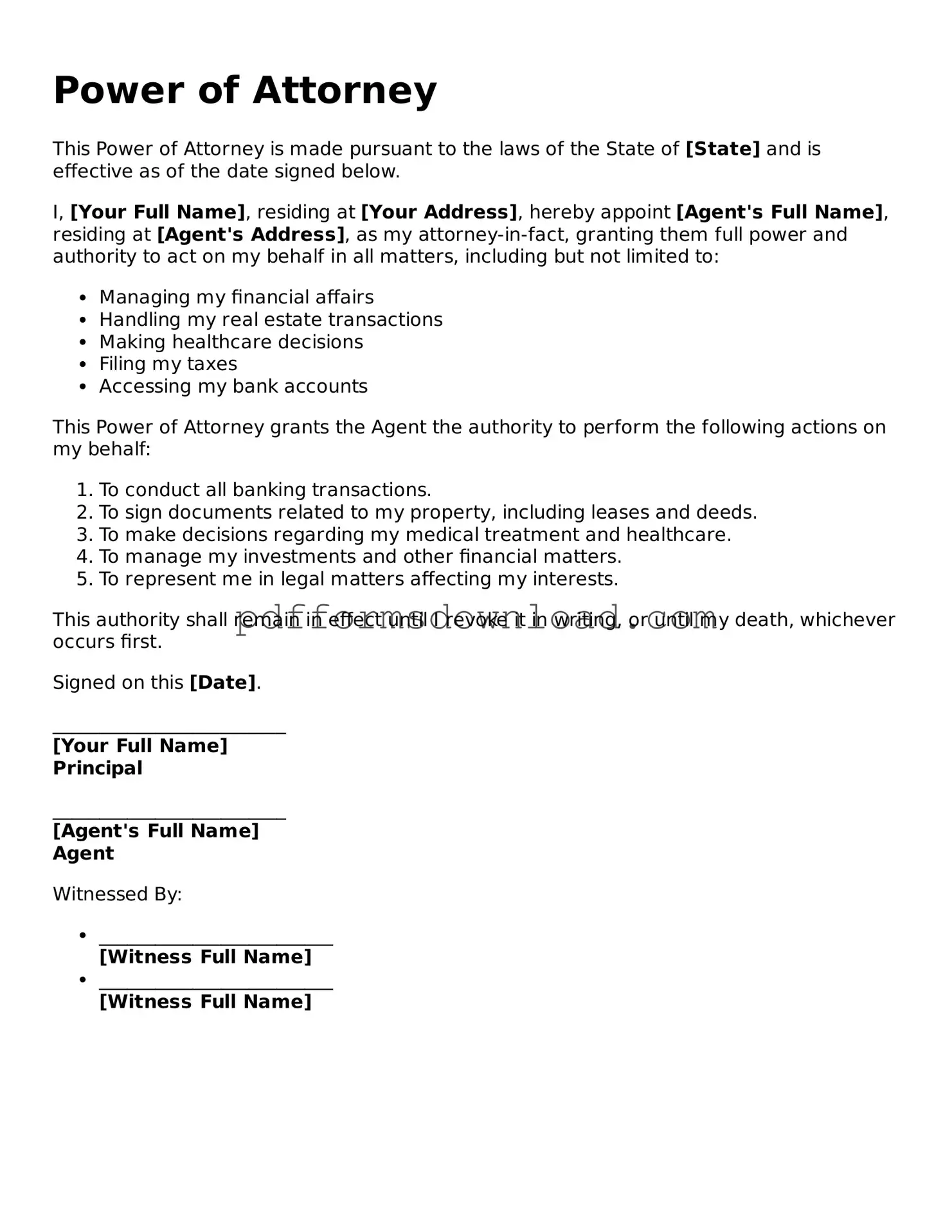What is a Power of Attorney (POA)?
A Power of Attorney is a legal document that allows one person, known as the principal, to designate another person, referred to as the agent or attorney-in-fact, to make decisions on their behalf. This can include financial matters, healthcare decisions, or other legal affairs, depending on the type of POA established.
Why might someone need a Power of Attorney?
Individuals may need a Power of Attorney for various reasons. For instance, if a person becomes incapacitated due to illness or injury, having a POA ensures that someone they trust can manage their affairs. Additionally, it can be useful for those who travel frequently or are unable to attend to their matters due to other commitments.
What types of Power of Attorney are there?
There are several types of Power of Attorney, including:
- General Power of Attorney: Grants broad powers to the agent to act on behalf of the principal in various matters.
- Durable Power of Attorney: Remains effective even if the principal becomes incapacitated.
- Medical Power of Attorney: Specifically allows the agent to make healthcare decisions for the principal.
- Limited Power of Attorney: Provides the agent with specific powers for a limited time or for particular tasks.
How do I choose an agent for my Power of Attorney?
Choosing an agent is a significant decision. The agent should be someone trustworthy, responsible, and capable of handling the responsibilities that come with the role. It may be beneficial to discuss the decision with the potential agent to ensure they are willing and able to serve in this capacity.
Do I need a lawyer to create a Power of Attorney?
While it is not legally required to have a lawyer draft a Power of Attorney, consulting with one can provide valuable guidance. An attorney can help ensure that the document meets all legal requirements and accurately reflects your wishes, which can prevent issues in the future.
Can I revoke a Power of Attorney?
Yes, a Power of Attorney can be revoked at any time as long as the principal is mentally competent. To revoke the POA, the principal must provide written notice to the agent and any relevant institutions or individuals who may rely on the document.
What happens if I do not have a Power of Attorney?
If an individual becomes incapacitated without a Power of Attorney, family members may need to go through a legal process to obtain guardianship or conservatorship. This process can be lengthy, costly, and may not align with the individual’s wishes.
Is a Power of Attorney valid in all states?
A Power of Attorney is generally recognized across states, but specific laws and requirements can vary. It is important to ensure that the document complies with the laws of the state in which it will be used. Consulting with a legal professional can help clarify any state-specific requirements.
Can a Power of Attorney be used for financial decisions?
Yes, a Power of Attorney can be specifically designed to handle financial matters. The agent can manage bank accounts, pay bills, and make investment decisions on behalf of the principal, depending on the powers granted in the document.
What should I do if my agent is not acting in my best interest?
If an agent is not acting in the best interest of the principal, it may be necessary to take legal action. This could involve revoking the Power of Attorney and potentially seeking legal recourse if the agent has mismanaged funds or acted improperly. Consulting with an attorney can provide guidance on the best course of action.

